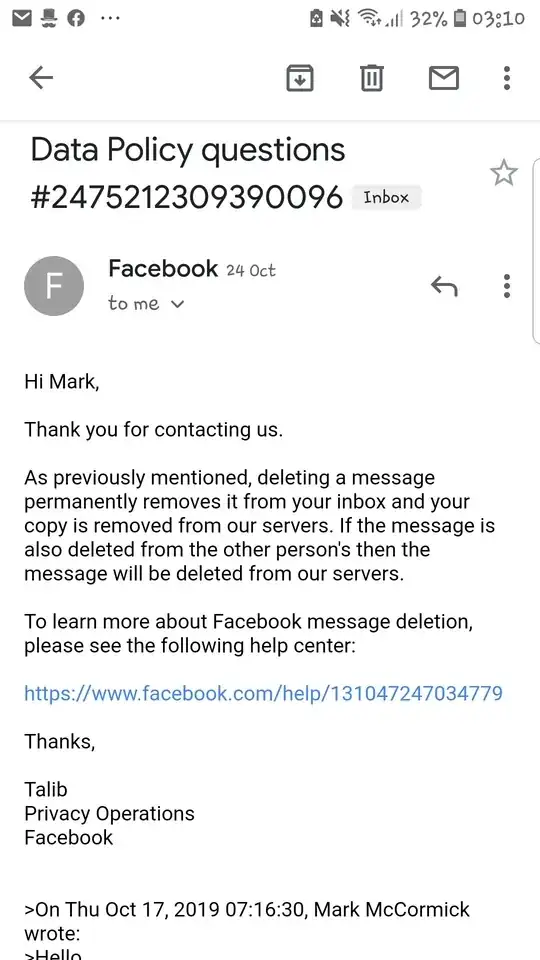I asked this question to Facebook:
I would like to know how can I permanently delete private messages from both sides of the conversation. For example, conversations I had in the past with other Facebook users that I don't want them to be able to see/read anymore.
If this is currently possible, or will be possible in the future, how can I apply this action also to messages I have already deleted from my side in the past?
And they replied this:
Messenger works like texting (SMS) and other mobile messaging apps to let you reach people instantly on their phones. When you send a message on Messenger a copy will be saved to your device. Only you and the people you’re in a conversation with can see your messages.
Deleting a message permanently removes it from your inbox and your copy is removed from our servers. Keep in mind that deleting a message or conversation from your inbox won't delete it from your another person's inbox. As with messages sent via text message or by email, it isn't possible to delete sent or received messages from another person's inbox.
Since I don't agree with this answer, I replied:
While I understand what you mean regarding Messenger working like texting (SMS), there is a difference in that SMS messages do not stay saved on the servers permanently.
Even with Whatsapp, as far as I know, messages are deleted from the servers once they reach the recipient's device. This seems more like texting (SMS).
So, regarding Messenger, I would like to have a way to delete messages from Facebook's servers (including those I deleted so far), in both my side and recipient's side, even if a copy stays on recipients' devices.
With a final reply from Facebook:
As previously mentioned deleting a message permanently removes it from your inbox and your copy is removed from our servers. However, deleting a message or conversation from your inbox won't delete it from your another person's inbox. As with messages sent via text message or by email, it isn't possible to delete sent or received messages from another person's inbox even if you delete your account.
Is this being GDPR compliant?
I'm sure they are aware that private messages can have a lot of PII data, such as photos, addresses, private information that can easily identify an individual, etc... (or even my name, if they keep it attached to the message threads)
If I decide to delete my account, apparently all the private messages I sent to others will never be deleted from Facebook servers, unless the recipients have deleted from their side.
I don't see this as being compliant to the Art. 17 GDPR - Right to erasure.
Am I correct?
